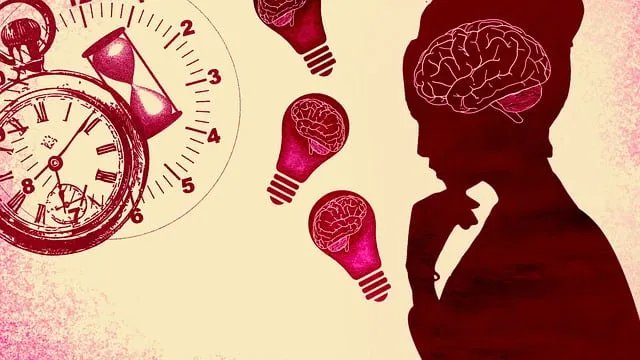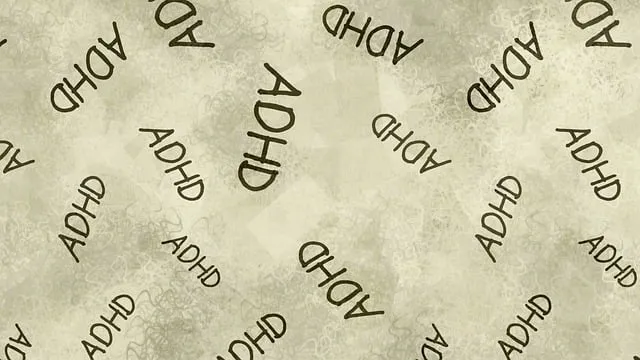Kaiser Permanente Mental Health Lafayette emphasizes creating a supportive environment for effective group facilitation. By recognizing power dynamics, cultural diversity, and personal boundaries, facilitators employ techniques like active listening and conflict resolution. They promote open communication, prevent burnout, and encourage vulnerability through exercises and interactive activities. This strategic approach fosters mental wellness discussions, enhances well-being, and builds community within the Kaiser Permanente Mental Health Lafayette network.
Discover effective group facilitation techniques at Kaiser Permanente Mental Health Lafayette, designed to enhance mental wellness. This comprehensive guide explores strategies for creating a safe and supportive environment, engaging participants actively, facilitating productive discussions on delicate topics, and measuring success. Learn how these techniques empower facilitators to make a profound impact on individuals seeking support within the unique context of Kaiser Permanente mental health services in Lafayette.
- Understanding Group Dynamics for Effective Facilitation at Kaiser Permanente Mental Health Lafayette
- Building a Safe and Supportive Environment: Key Techniques for Group Leaders
- Engaging Participants: Strategies to Encourage Active Participation in Mental Wellness Groups
- Facilitating Productive Discussions: Guidance for Navigating Delicate Mental Health Topics
- Measuring Success and Adapting Techniques: Evaluating the Impact of Group Facilitation at Kaiser Permanente
Understanding Group Dynamics for Effective Facilitation at Kaiser Permanente Mental Health Lafayette

At Kaiser Permanente Mental Health Lafayette, understanding group dynamics is key to effective facilitation. Group environments can foster a sense of community and support, but they also present unique challenges. Facilitators must navigate interactions among individuals with diverse backgrounds, experiences, and mental health conditions. By recognizing power dynamics, cultural differences, and personal boundaries, facilitators create an inclusive space where every voice is valued.
This understanding enables the implementation of techniques such as active listening, conflict resolution strategies, and burnout prevention practices. Promoting open communication and addressing potential conflicts early on ensures that the group remains productive and therapeutic. Incorporating these skills allows facilitators to guide members through discussions on mental wellness, enhancing their overall well-being and fostering a sense of collective empowerment at Kaiser Permanente Mental Health Lafayette.
Building a Safe and Supportive Environment: Key Techniques for Group Leaders

Creating a safe and supportive environment is paramount for effective mental wellness group facilitation. Group leaders play a crucial role in fostering a space where participants feel comfortable sharing their experiences and emotions, free from judgment or stigma. Techniques such as active listening, open-ended questioning, and normalizing diverse perspectives help to build trust and encourage vulnerability.
At Kaiser Permanente mental health Lafayette, facilitators utilize emotional well-being promotion techniques like establishing clear ground rules, promoting self-care practices, and incorporating activities that enhance mental health awareness. By cultivating a non-threatening atmosphere, leaders enable individuals to connect on a deeper level, fostering meaningful interactions and supportive relationships among group members.
Engaging Participants: Strategies to Encourage Active Participation in Mental Wellness Groups

Encouraging active participation from group members is essential for creating a supportive and effective environment in mental wellness gatherings facilitated by Kaiser Permanente mental health professionals in Lafayette. One proven strategy involves employing interactive self-awareness exercises that foster open dialogue. These activities can be as simple as guided meditations or more structured discussions centered around specific themes, designed to prompt participants to share their experiences and insights. By actively engaging in these exercises, individuals develop a deeper understanding of their thoughts and emotions, which can lead to enhanced self-expression and bonding within the group.
Additionally, incorporating elements from mental wellness podcast series production into your facilitation style can make sessions more dynamic and appealing. This might include using storytelling prompts, encouraging members to share their personal journeys in an anonymous manner, or even assigning small group discussions with a specific focus related to topics covered in recent podcasts. Promoting positive thinking through these techniques not only improves engagement but also cultivates a sense of community among participants, reflecting the core values of Kaiser Permanente mental health services in Lafayette.
Facilitating Productive Discussions: Guidance for Navigating Delicate Mental Health Topics

Facilitating productive discussions around mental health is an art that requires careful navigation. When leading a group in Lafayette, particularly with diverse backgrounds and experiences like those encountered at Kaiser Permanente mental health services, creating a safe space is paramount. It involves setting clear ground rules, ensuring confidentiality, and cultivating an environment where every individual feels heard, respected, and valued. This includes demonstrating active listening, validating emotions, and using non-judgmental language.
Cultural competency training for healthcare providers plays a crucial role here. Understanding the unique perspectives and experiences of group members fosters empathy and encourages open dialogue. For instance, discussing anxiety relief strategies can be enhanced by considering cultural nuances that shape perceptions of stress and coping mechanisms. Incorporating self-care practices tailored to diverse needs ensures that discussions remain productive and beneficial for all participants, ultimately enriching the mental wellness journey at Kaiser Permanente Lafayette.
Measuring Success and Adapting Techniques: Evaluating the Impact of Group Facilitation at Kaiser Permanente

Measuring success and adapting techniques is a crucial aspect of group facilitation, as demonstrated by Kaiser Permanente’s initiatives in Lafayette. Evaluating the impact of mental health group sessions involves assessing improvements in participants’ well-being, engagement, and coping strategies. At Kaiser Permanente, this is achieved through pre-and post-session surveys, feedback forms, and observation. The data collected provides insights into the effectiveness of the facilitators’ skills and the overall program design.
By analyzing participant outcomes, facilitators can adapt their techniques to better cater to diverse needs. This continuous improvement approach ensures that mental health education programs, such as those designed by Kaiser Permanente, remain relevant and impactful. Moreover, incorporating feedback from both participants and healthcare providers enhances cultural competency training, making the programs more inclusive and accessible for all individuals seeking mental wellness support in the Lafayette community.
Group facilitation techniques, as exemplified by successful programs at Kaiser Permanente Mental Health Lafayette, play a pivotal role in enhancing mental wellness. By fostering safe and supportive environments, engaging participants actively, and skillfully navigating delicate topics, facilitators can profoundly impact individuals’ well-being. Implementing these strategies not only improves group dynamics but also ensures that members receive the support they need to navigate their mental health journeys effectively. Continue exploring these techniques to revolutionize mental health care and create more inclusive, impactful programs like those offered at Kaiser Permanente Lafayette.






